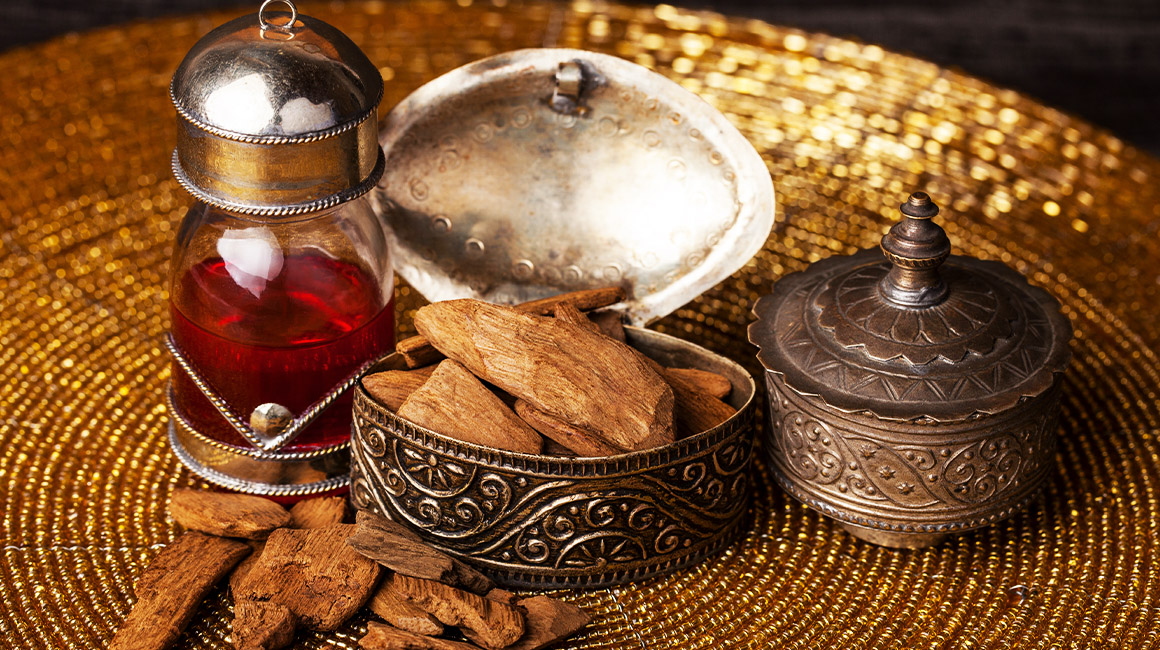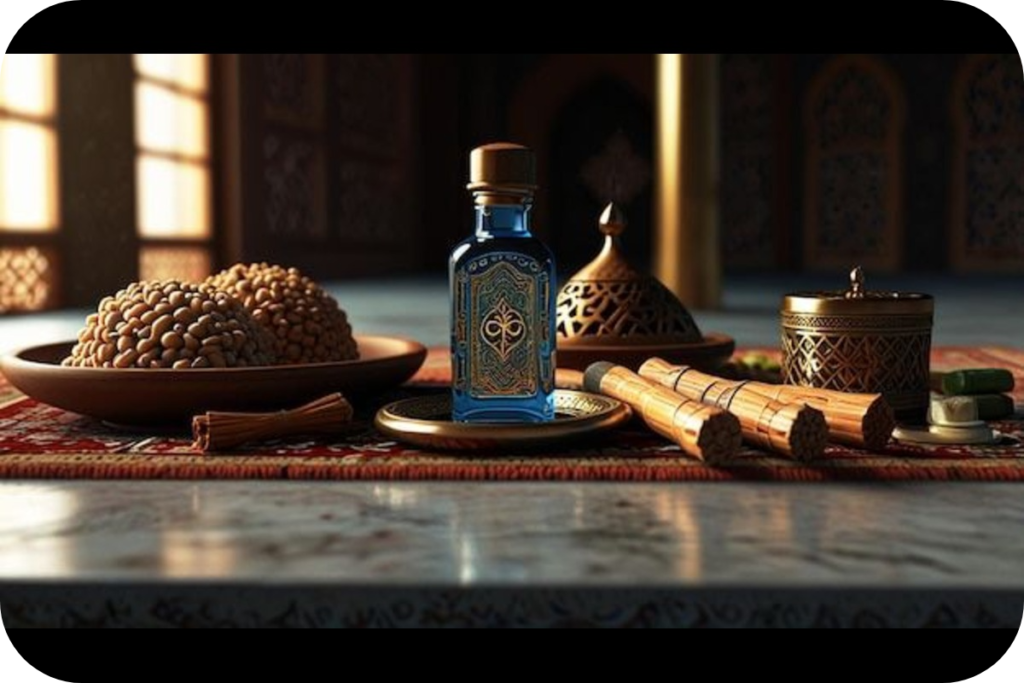Blog
The History of Perfume: From Ancient Scents to Modern Luxury
The History of Perfume: From Ancient Scents to Modern Luxury
Perfume has been an integral part of human culture for thousands of years, evolving from ancient rituals to modern luxury scents. The use of fragrance is as old as civilization itself, and over the centuries, it has transformed from a sacred, mystical element into a form of personal expression and opulence. In this article, we explore the fascinating history of perfume, from its ancient origins to its current status as a symbol of luxury and elegance.
Ancient Beginnings: The Sacred Scents of Early Civilizations
The story of perfume begins in ancient times when fragrances were considered to hold sacred powers. The earliest known use of perfume dates back to ancient Mesopotamia (around 3000 BCE), where early civilizations would burn incense in religious ceremonies to honor their gods. These early fragrances were derived from natural resins, herbs, and spices, and they were burned in temples or used in rituals to purify the air and connect with the divine.
In ancient Egypt, perfume played a significant role in daily life and religious practices. The Egyptians were among the first to create perfumes by distilling natural substances like flowers, herbs, and resins. Pharaohs and queens, including Cleopatra, were known for their luxurious baths infused with aromatic oils and fragrant oils for anointing their bodies. The Egyptians developed the art of essential oil extraction using techniques that would later influence perfume-making for centuries to come.
The Egyptians not only used perfume for personal grooming but also as a symbol of wealth and social status. The fragrance was an integral part of embalming rituals, ensuring the deceased’s scent would be pleasing in the afterlife. Incense and myrrh, in particular, were sacred offerings in Egyptian temples and were essential in religious ceremonies.
The Influence of Ancient Greece and Rome
The ancient Greeks and Romans also had a profound influence on the development of perfume. The Greeks revered the art of perfumery, with goddesses like Aphrodite being associated with floral and sweet scents, symbolizing beauty and love. Aristotle and other philosophers recognized the power of scent, with some claiming that the gods themselves communicated through fragrance.
The Romans took perfume-making a step further. Wealthy Roman citizens were known for their elaborate bathing rituals, where they used perfumes and oils to cleanse and moisturize their skin. Roman perfumers began using more sophisticated methods of distillation to create complex fragrances. Rose, lavender, and violet were some of the flowers used to create scented oils, and fragrances were used not just for personal adornment, but also in homes and public spaces to mask unpleasant odors in the unsanitary streets of Roman cities.
The Middle Ages: Perfume as a Symbol of Status
After the fall of the Roman Empire, the art of perfume-making saw a decline in Europe. However, the Middle East and the Islamic world continued to advance the art of fragrance. The Arabians made significant strides in the development of distillation techniques, refining the methods that would eventually bring perfume to Europe.
By the 9th century, Al-Kindi, an Arab philosopher and scientist, wrote one of the first books on the art of making perfumes. He introduced the concept of blending different ingredients to create harmonious scents, which later became a key principle in Western perfume-making. The Crusades also played a crucial role in spreading these new perfume-making techniques to Europe. As trade routes expanded, so did the use of exotic fragrances, spices, and herbs.
In medieval Europe, perfume became a luxury item associated with the wealthy and royalty. Scented oils and perfumes were used to mask unpleasant body odors, as bathing was not common during this time. The use of perfume as a symbol of wealth and status grew, and only the elite could afford the rare and expensive ingredients required to create perfumes.
 Renaissance and the Birth of Modern Perfume
Renaissance and the Birth of Modern Perfume
The Renaissance period marked the beginning of perfume as we know it today. During the 16th century, Italy and France became the centers of perfume innovation. The Medici family, known for their patronage of the arts, were key figures in the development of early European perfume. It was during this time that Catherine de Medici, the queen of France, introduced the use of perfumes to the French court, forever influencing the future of French perfumery.
The creation of modern perfume really began in the 17th century when perfumers in France, particularly in Grasse, began to focus on refining and creating signature fragrances. Grasse, located on the Mediterranean coast, became the perfume capital of the world, with its lush fields of lavender, jasmine, and roses providing the essential flowers and botanicals that would shape the perfume industry.
The Birth of Modern Luxury Perfume: The 18th and 19th Centuries
The 18th century witnessed the rise of iconic perfume houses and the establishment of perfume as an important part of European high society. François Coty, one of the earliest influential perfumers, revolutionized the industry by making perfumes more accessible to the middle class and creating mass-market scents that retained a sense of luxury.
The industrial revolution in the 19th century enabled the mass production of perfumes, which made fragrances more affordable. As society became more industrialized and modernized, perfumes started to be marketed not just as tools of hygiene or luxury, but as symbols of personal identity and individual style.
 The 20th Century: Perfume Becomes a Global Industry
The 20th Century: Perfume Becomes a Global Industry
The 20th century was a golden age for perfume. With the birth of iconic perfume houses like Chanel, Dior, and Guerlain, perfume transitioned into an art form, and perfume became an essential part of fashion and beauty. Coco Chanel’s “Chanel No. 5” (introduced in 1921) became a symbol of elegance and timelessness, and is still one of the best-selling perfumes in history. Perfume was now seen as a statement, an extension of one’s personality, and a crucial part of the luxury lifestyle.
The 20th century also saw the rise of celebrity perfumes, with Hollywood stars like Elizabeth Taylor and Marilyn Monroe launching their own signature scents, making fragrance more accessible to the masses while maintaining its allure as a luxurious product.
Perfume Today: A Blend of Tradition and Innovation
Today, perfume is both an art and a science. Modern perfumers blend traditional methods with cutting-edge technology, using ingredients from both nature and synthetic sources to create scents that evoke a wide range of emotions and memories. Perfume has become an essential part of the beauty and fashion industry, with countless brands and houses offering unique and luxurious options for every personality and occasion.
Sustainability has also emerged as a key focus in the modern perfume industry, with an increasing number of consumers demanding eco-friendly and ethically sourced ingredients. As the demand for clean beauty continues to grow, many fragrance brands are working to create more sustainable, cruelty-free products.
 Conclusion: The Timeless Appeal of Fragrance
Conclusion: The Timeless Appeal of Fragrance
From its sacred origins in ancient civilizations to its status as a symbol of luxury and personal expression, perfume has played an integral role in human culture for millennia. Whether worn for religious rituals, as a symbol of wealth, or as a way to express one’s individuality, fragrance continues to captivate us. As we look to the future, the history of perfume serves as a reminder of the enduring power of scent, and how it has shaped and will continue to shape our world.


